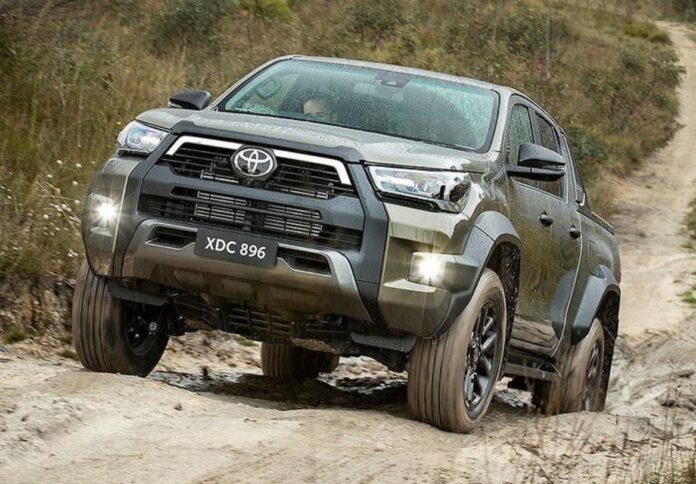
Toyota Australia is set to offer approximately 10 per cent fuel economy improvement for certain HiLux models, compared to the current 2.8-litre turbo diesel variants, when upgraded versions fitted with 48-volt technology arrive in the first half of 2024.
In a press release, the car manufacturer explained that the 48V technology, which includes an additional 48-volt battery, small electric motor-generator, and other components, will be paired with the 2.8-litre turbo diesel engine and six-speed automatic transmission.
Aside from greater fuel economy, 48-Volt Technology will enable a stop/start system, improved driveability, and reduced noise, vibration, and harshness.
Sean Hanley, Toyota Australia Vice President Sales, Marketing, and Franchise Operations, stated that the addition of 48-volt technology to the HiLux proved Toyota’s commitment to reduce fuel consumption while maintaining the performance and capabilities sought by customers.
“We are continually striving to reduce the fuel consumption of our vehicles to help reduce on-going costs for customers, as well as helping reduce our environmental impact, and the addition of 48-Volt Technology to our biggest-selling vehicle line will contribute to this,” Hanley said.
He remarked that the new technology will not only cut fuel efficiency, but will also increase on and off-road performance, making the HiLux even more enticing for a weekend getaway or longer-term outback trip.
All 4×4 SR5 and Rogue Double Cab models will come standard with 48-Volt Technology, and 4×4 SR Double Cab models can choose it as an option.
Toyota Australia said the HiLux’s 4×4 models’ capabilities will not be impacted by the installation of 48-volt technology, which keeps its 3500kg braked towing capacity.
More information will be released closer to the launch date of 2024.




















